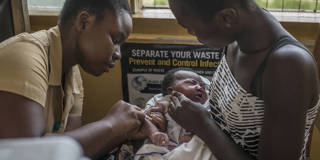Expensive synthetic proteins revolutionized the treatment of cancer and autoimmune disorders in high-income countries. But the same therapeutics could lead to the eradication of infectious diseases linked to poverty if they become more potent, less expensive, and easier to manufacture.
GENEVA – Over the past three years, the COVID-19 pandemic has dominated headlines and spurred scientific research, with experts around the world focusing resources and any potentially useful technology on the problem. While the spotlight on COVID-19 has dimmed slightly, it remains a high global priority, sometimes to the detriment of infectious diseases linked to poverty and primarily affecting the Global South. For example, Malaria killed an estimated 619,000 people – most of them children in Sub-Saharan Africa – in 2021, when there were 247 million cases worldwide.

GENEVA – Over the past three years, the COVID-19 pandemic has dominated headlines and spurred scientific research, with experts around the world focusing resources and any potentially useful technology on the problem. While the spotlight on COVID-19 has dimmed slightly, it remains a high global priority, sometimes to the detriment of infectious diseases linked to poverty and primarily affecting the Global South. For example, Malaria killed an estimated 619,000 people – most of them children in Sub-Saharan Africa – in 2021, when there were 247 million cases worldwide.